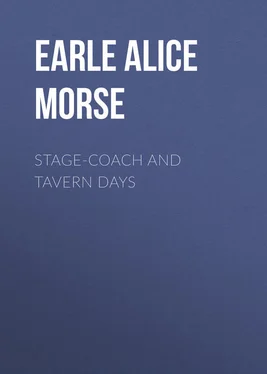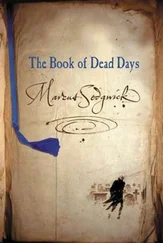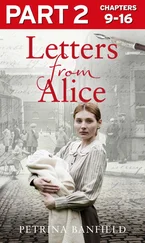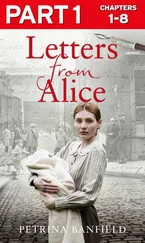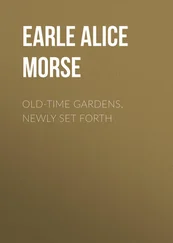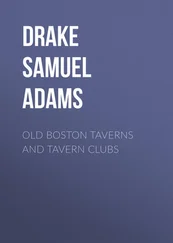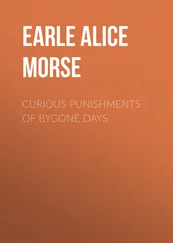Alice Earle - Stage-coach and Tavern Days
Здесь есть возможность читать онлайн «Alice Earle - Stage-coach and Tavern Days» — ознакомительный отрывок электронной книги совершенно бесплатно, а после прочтения отрывка купить полную версию. В некоторых случаях можно слушать аудио, скачать через торрент в формате fb2 и присутствует краткое содержание. Жанр: foreign_antique, foreign_prose, на английском языке. Описание произведения, (предисловие) а так же отзывы посетителей доступны на портале библиотеки ЛибКат.
- Название:Stage-coach and Tavern Days
- Автор:
- Жанр:
- Год:неизвестен
- ISBN:нет данных
- Рейтинг книги:4 / 5. Голосов: 1
-
Избранное:Добавить в избранное
- Отзывы:
-
Ваша оценка:
- 80
- 1
- 2
- 3
- 4
- 5
Stage-coach and Tavern Days: краткое содержание, описание и аннотация
Предлагаем к чтению аннотацию, описание, краткое содержание или предисловие (зависит от того, что написал сам автор книги «Stage-coach and Tavern Days»). Если вы не нашли необходимую информацию о книге — напишите в комментариях, мы постараемся отыскать её.
Stage-coach and Tavern Days — читать онлайн ознакомительный отрывок
Ниже представлен текст книги, разбитый по страницам. Система сохранения места последней прочитанной страницы, позволяет с удобством читать онлайн бесплатно книгу «Stage-coach and Tavern Days», без необходимости каждый раз заново искать на чём Вы остановились. Поставьте закладку, и сможете в любой момент перейти на страницу, на которой закончили чтение.
Интервал:
Закладка:
Alice Morse Earle
Stage-coach and Tavern Days
CHAPTER I
THE PURITAN ORDINARY
In reverent and affectionate retrospective view of the influences and conditions which had power and made mark upon the settlement of New England, we are apt to affirm with earnest sentiment that religion was the one force, the one aim, the one thought, of the lives of our forbears. It was indeed an ever present thought and influence in their lives; but they possessed another trait which is as evident in their records as their piety, and which adds an element of human interest to their story which their stern Puritanism never could have done; with them their neighborliness, was as ever present and as sincere as their godliness. Hence the establishment of an hostelry, – an ordinary it was usually called, – for the entertainment of travellers and for the mutual comfort of the settlers, was scarcely second to their providing a gathering-place for the church.
The General Court of Massachusetts at an early date took decisive measures with regard to houses of common entertainment. No one was permitted to keep without license “a common victuallyng house,” under a penalty of twenty shillings a week. Soon the power of granting licenses was transferred to the County Courts, as the constant increase in the number of ordinaries made too constant detailed work for so important a body as the General Court.
Consideration for the welfare of travellers, and a desire to regulate the sale of intoxicating liquors, seemed to the magistrates important enough reasons not only to counsel but to enforce the opening of some kind of a public house in each community, and in 1656 the General Court of Massachusetts made towns liable to a fine for not sustaining an ordinary. Towns were fined and admonished for not conforming to this law; Concord, Massachusetts, was one of the number. The Colonial Records of Connecticut, in 1644, ordered “one sufficient inhabitant” in each town to keep an ordinary, since “strangers were straitened” for want of entertainment. A frequent and natural choice of location for establishing an ordinary was at a ferry. Tristram Coffyn kept both ferry and ordinary at Newbury, Massachusetts; there was an ordinary at Beverly Ferry, known until 1819 as the “Old Ferry Tavern.”
Great inducements were offered to persons to keep an ordinary; sometimes land was granted them, or pasturage for their cattle, or exemption from church rates and school taxes. In 1682, Hugh March, of Newbury, Massachusetts, petitioned for a renewal of his license to keep an ordinary, saying thus: “The town of Newbury, some years since, were destitute of an ordinary, and could not persuade any person to keep it. For want of an ordinary they were twice fined by the county, and would have been a third time had I not undertaken it.” In 1668 the town had persuaded one Captain White to “undertake an ordinary” on high moral grounds; and it is painful to record that, though he did so unwillingly, he found the occupation so profitable that he finally got into disgrace through it.
The early taverns were not opened wholly for the convenience of travellers; they were for the comfort of the townspeople, for the interchange of news and opinions, the sale of solacing liquors, and the incidental sociability; in fact, the importance of the tavern to its local neighbors was far greater than to travellers. There were many restrictions upon the entertainment of unknown strangers. The landlord had to give the name of all such strangers to the selectmen, who could, if they deemed them detrimental or likely to become a charge upon the community, warn them out of the town. The old town records are full of such warnings, some of them most amusing. Nor could the landlord “knowingly harbor in house, barn, or stable, any rogues, vagabonds, thieves, sturdy beggars, masterless men or women.” Our ancestors were kindly neighbors to godly folk, but sternly intolerant of wrong-doers, or even of those suspected of wrong.
We cannot wonder that citizens did not seek to become ordinary-keepers when we learn how they were hampered, or how the magistrates tried to hamper them. They were at one time not to be permitted to sell “sack or strong waters,” nor have any dancing or singing within their walls. No games could be played in their precincts. They were even hindered in the selling of cakes and buns. Innholders and victuallers were prohibited the brewing of beer, but that soon had to be revoked. The price and quality of beer was constantly being established by law and as constantly changed. In 1634 the Court set the price of a single meal at sixpence, and not above a penny for an ale-quart of beer out of meal time. Then, a little later, the landlords were forbidden to change more than twelve pence for a meal; and they were ordered to furnish meals to “pore people,” as simply as called for.
One Richard Cluffe, in an utterance which sounds like the voice of Shakespeare’s clown, exclaimed at a mean meal served to him, “What! shall I pay twelve pence for the fragments which the grand jury roages have left?” The majesty of the law could not thus be attacked in Massachusetts in the year 1640. Three pounds six shillings and eight pence did Cluffe pay for his rash and angry words – truly a costly dinner.
The ordinary called The Anchor, at Lynn, was kept by one Joseph Armitage. Being a halfway house between Boston and Salem, the magistrates made it their stopping-place on their various trips from court to court. The accounts of this ordinary are still preserved. Governor Endicott’s bills for “vitals, beare, and logen,” for “bear and caeks,” were paid by the Auditor. Governor Bradstreet had “beare and wyne.” The succeeding landlord of this ordinary was described by John Dunton in 1686 as a hearty, talkative, fine old gentleman, one of Oliver Cromwell’s soldiers. Dunton had at The Anchor a good fowl and a bottle of sack, instead of the beer and cakes of the abstemious Puritan governor.
The “Sports of the Innyard” were sternly frowned upon by Puritan magistrates. Among the games which were named as forbidden in the ordinaries were “carding,” dicing, tally, bowls, billiards, slidegroat, shuffle-board, quoits, loggets, ninepins. After a time shuffle-board and bowls were tolerated in private houses, though not deemed reputable at the ordinary.
The Puritan ordinary saw some wedding scenes, and apparently some tentatively gay scenes, since in 1631 the magistrates of Massachusetts Bay, in “consequence of some miscarriages at weddings” which had been held in an ordinary, passed a law prohibiting dancing on such occasions in public houses.
Lord Ley lodged at the Boston ordinary in 1637; and when Governor Winthrop urged him to come to his home from the inn, his lordship declined, saying that the house where he was staying was so well ordered that he could be as private there as elsewhere.
In the towns a night-watch was soon instituted, and the instructions given by the Boston magistrates smack strongly of Dogberry’s famous charge. Their number each night was eight; they were “to walk two by two together, a youth joined to an older and more sober person.” Lights had to be out, – or hidden, – especially in the ordinaries. “If they see lights, to inquire if there be warrantable cause; and if they hear any noise or disorder, wisely to demand the reason; if they are dancing and singing vainly, to admonish them to cease; if they do not discontinue after moderate admonition, then the constable to take their names and acquaint the authorities therewith. If they find young men and maidens, not of known fidelity, walking after ten o’clock, modestly to demand the cause, and if they appear ill-minded, to watch them narrowly, command them to go to their lodgings, and if they refuse then to secure them till morning.” In 1663 Josselyn found that young sparks walking with their sweet-hearts, or “Marmalet-Madams” as he called them, had to go home at nine o’clock.
Читать дальшеИнтервал:
Закладка:
Похожие книги на «Stage-coach and Tavern Days»
Представляем Вашему вниманию похожие книги на «Stage-coach and Tavern Days» списком для выбора. Мы отобрали схожую по названию и смыслу литературу в надежде предоставить читателям больше вариантов отыскать новые, интересные, ещё непрочитанные произведения.
Обсуждение, отзывы о книге «Stage-coach and Tavern Days» и просто собственные мнения читателей. Оставьте ваши комментарии, напишите, что Вы думаете о произведении, его смысле или главных героях. Укажите что конкретно понравилось, а что нет, и почему Вы так считаете.
